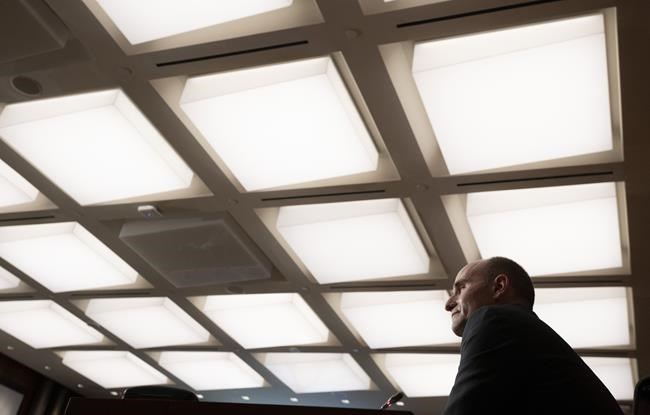OTTAWA — The federal government is now warning Canadians against all non-essential international travel in the face of the rapidly spreading Omicron variant of COVID-19.
"To those who were planning to travel I say very clearly, now is not the time to travel," Health Minister Jean-Yves Duclos said Wednesday at a news conference in Ottawa.
"The rapid spread of the Omicron variant on a global scale makes us fear the worst for Canadians that may think of travelling."
Duclos said the highly transmissible variant is now spreading in Canadian communities, and just about everywhere else in the world. He said that people who leave the country risk spreading the virus, and getting stranded abroad.
The new advisory takes a stronger stance than the one published shortly after the emergence of the Omicron variant, urging Canadians to be aware that travel to an area with Omicron could hamper their ability to return to Canada.
"We know that this may sound very drastic," Duclos said. "But we must avoid overloading our hospital system and our health-care workers."
The news came as a bit of a blow to Brian Hayes and his family. He and his wife weren't able to spend Christmas with their kids last year because of the pandemic, so they resolved to meet in Hawaii this holiday season.Â
"You kind of beat yourself up a bit about making these plans a year in advance but we thought vaccinations would make a big, big difference, having no idea of course about the science of the variants," Hayes said.Â
They paid off the trip over the course of the year. Now, because their travel insurance does not cover advisory changes, it looks like the family won't be able to recoup the cost if they cancel.Â
Tempting as it is to head to sunny shores regardless of the government's advice, the family has opted to stay in Canada for the holidays.Â
"At least we'll all be together this Christmas," he said
Duclos would not offer advice on domestic travel, adding that any travel restrictions within Canada will come from provincial governments, but Prime Minister Justin Trudeau urged Canadians to be cautious when making their travel plans.Â
"I understand this sucks," Trudeau said Wednesday. "The reality is Omicron is here in Canada, and we have to cut down community spread."
"Canadians will, I know, be continuing to demonstrate the thoughtfulness and the care that they've shown not just for themselves and their loved ones, but also for health-care workers and front-line workers and our health-care systems that have come so close to being overwhelmed time and time again," he said.
Dr. Stephen Ellis, who has been tapped to help Conservatives take policy positions around COVID-19, told reporters Canadians are tired of COVID-19 and people are losing hope, so the focus needs to be on how people are going to live with the pandemic.
"The frustration, I think, that we hear from Canadians is what's the endgame here?" he said. "The pragmatic approach becomes, how are we going to live with COVID in our lives?"
Ministers warned more measures at the border could still be on the way, and did not rule out the possibility of reinstating the requirement for travellers who leave the country for less than 72 hours to complete a molecular COVID-19 test in order to re-enter Canada.
Currently, Canada has banned all foreign nationals who have been in 10 specific African countries in the last 14 days from entering the country to offset the threat of importing Omicron cases. That policy should be re-examined, chief public health officer Dr. Theresa Tam said Wednesday. Duclos hinted the government may "clarify" that policy soon.
The announcement came after Trudeau spoke with provincial and territorial premiers Tuesday evening to discuss how to respond to Omicron.
Ottawa has agreed to send shipments of booster doses and rapid tests to provinces and territories to quickly ramp up vaccination campaigns to combat the virus at home.Â
Trudeau and the premiers also discussed potential domestic measures to stop community spread.
Meanwhile, Tam has advised against all mass gatherings, even for people who are fully vaccinated.
"At this point in time, what we know is that even if you have two doses, there's a possibility you could be infected and spread to others," Tam said Wednesday.Â
Finance Minister Chrystia Freeland dedicated $4.5 billion in Tuesday's fiscal update to respond to the Omicron variant.
The government has also set aside $1.7 billion to buy and distribute rapid tests to the provinces, and $2 billion for drugs to treat people who have been infected.
"I know that the rising threat Omicron poses is not something any of us want to be dealing with, especially now, just before the holidays," Freeland said Wednesday.
This report by The Canadian Press was first published Dec. 15, 2021.
— With files from Stephanie Taylor
Laura Osman, The Canadian Press



